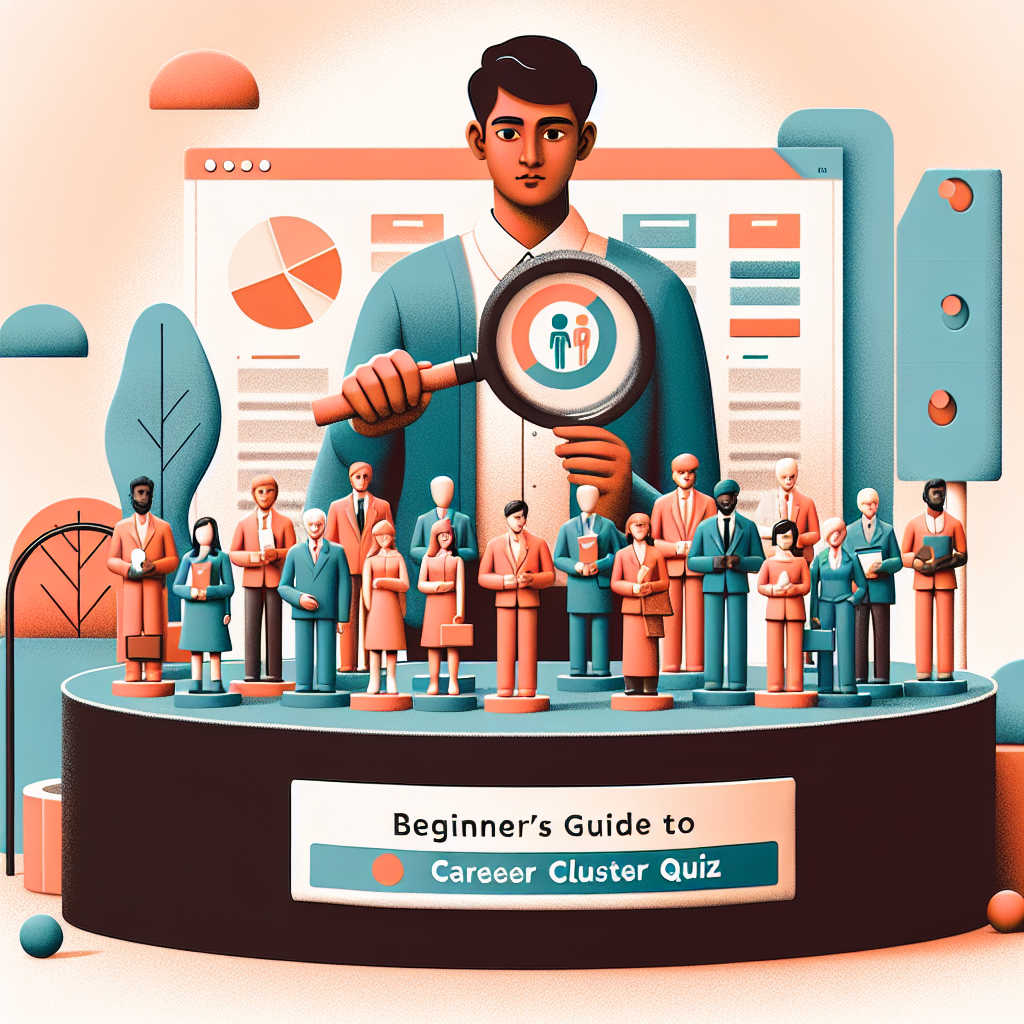Choosing a career path can feel overwhelming, especially if you’re just starting to explore your strengths and interests. This Beginner’s Guide To Career Cluster Quiz is designed to walk you through what career clusters are, how a cluster quiz works, and practical next steps after you get your results. Whether you’re in high school, returning to the workforce, or considering a career change, this guide will help you interpret quiz outcomes and turn them into actionable plans.
What is a career cluster and why it matters
Career clusters group occupations and industries that share common skills, knowledge, and interests. Using clusters simplifies career exploration by connecting broad interests—like helping people or working with technology—to related job families. Instead of choosing from thousands of job titles, you can focus on a cluster that fits your values and aptitudes, then explore specific roles within it.
How a career cluster quiz works
A career cluster quiz typically asks about your preferences, strengths, and typical activities you enjoy. Questions might probe whether you prefer hands-on problem solving, creative expression, analytical tasks, leadership, or caring for others. The quiz scores your answers and suggests clusters that align with your profile. Remember: the quiz offers direction, not a fixed destiny. Use it to narrow your focus and prioritize research.
Interpreting your results
When you receive your top clusters, take these steps:
- Read cluster descriptions to see common themes and required skills.
- List jobs within the cluster that match your lifestyle needs and values.
- Rank options by education/training required, salary expectations, and job outlook.
Turning quiz outcomes into a plan
After identifying promising clusters, create a short-term action plan: research typical entry roles, identify essential certifications or degrees, and look for volunteer or internship opportunities that build relevant experience. Set measurable milestones (e.g., complete a certificate, speak with three professionals in the field) and a timeline to keep momentum.
Career Cluster Quiz for Beginners: tips for newcomers
If you’re new to career exploration, start with these practical tips:
- Pair quiz results with informational interviews to get real-world perspectives.
- Try short online courses or community college classes to test interest before committing.
- Use skills-based volunteering or part-time work to build experience while you explore.
Special considerations for mid-career changes
Many people revisit career choices later in life. If you’re considering a shift, especially after long periods in one field, you’ll find targeted advice helpful. For ideas on beginning anew later in life, see this resource about starting fresh: new career paths for women at 50. That kind of guidance pairs well with cluster quiz outcomes and practical re-skilling options.
Where to research jobs and outlooks
Once you’ve narrowed to one or more clusters, check reputable labor-market sources for salary ranges, projected growth, and required qualifications. The U.S. Bureau of Labor Statistics provides detailed occupational outlooks and growth projections that can help you prioritize clusters with strong future demand; see the BLS overview of fastest-growing occupations for examples of in-demand fields.
Short checklist to move forward
- Review your cluster quiz results and highlight top 2–3 clusters.
- Research typical roles and required education for each cluster.
- Set a 6–12 month learning plan (courses, networking, experience).
- Talk to professionals and update your resume with transferable skills.
FAQ
Q: How accurate are career cluster quizzes?
A: Quizzes provide useful direction but aren’t determinative. Their value lies in revealing patterns in your interests and strengths. Combine quiz results with research, hands-on experiences, and conversations with people in the field to make informed decisions.
Q: Can I change clusters later?
A: Absolutely. Career clusters are flexible frameworks. Your interests and circumstances may shift, and many skills transfer across clusters. View clusters as guides that help you explore—not boxes that limit you.



